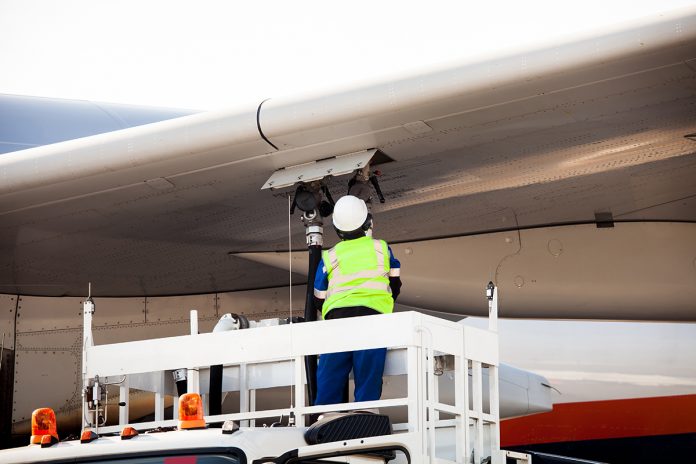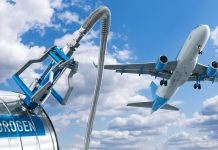Dr Simon Blakey, Senior Lecturer in Mechanical Engineering at the Low Carbon Combustion Centre, The University of Sheffield explores the rise of sustainable aviation fuels
Globally, in the last 24 hours more than 90,000 flights and more than 6 million people have been lifted up, high in the air and have been transported in thin, cold air in which we could not survive and landed safely at their destination and the only thing concerning us is how long the queue will be at the baggage carousel.
To allow this remarkable feat to happen, jet fuel is moved through the global distribution system at over 7,000 litres a second throughout the day and night. This colossal volume of aviation fuel requires an efficient, quality controlled and a well-managed delivery system. Above all, a safety-first approach is required throughout the system, from production to use.
The civil aviation sector has spent much of the last 60 years optimising the design of aircraft and engines to reduce aviation fuel consumption and lower CO2, noise and NOx emissions. The sector has had significant success in this undertaking, however, during this period the composition and properties of aviation fuel have been taken as a constant. This has effectively meant that the sector has been optimising hardware around a range of average, or worst-case fuels available. The use of these fuel sources represented no change on the sources used for gas turbines since the beginnings of the jet age and as such was the “Jet A-1 everybody knows”, based on accumulated experience.
The sector is now challenging itself even further and has imposed upon itself a range of emissions targets to further reduce its environmental impact: An average improvement in fuel efficiency of 1.5% per year from 2009 to 2020, a cap on that aviation CO2 emissions from 2020 essentially being carbon-neutral growth and a reduction in net aviation CO2 emissions of 50% by 2050, relative to 2005 levels. The achievement of such goals is requiring a continuation of technical and flight management improvements and attention has turned to the fuel used for flight. Moves towards fuels from a non-fossil sources are increasing and are supported globally by the establishment of market-based measures by UN-ICAO through the CORSIA scheme, which is currently voluntary for UN member states. Importantly, this is the first sector to place upon itself such stringent import targets and many member states are scaling up the production of fuels from a range of different sources to allow this to be achieved.
Significantly, many of these more novel fuels offer significant advantages to the engine emissions performance, they have a higher energy density and consequently a lower CO2 emission for an equivalent energy release, they are cleaner burning and produce significantly less soot emission. The debate concerning the uptake of such fuels should be extended to cover these other, non-CO2 related benefits which will undoubtedly improve the case for the use of such fuels. In fact, such considerations lead to the conclusion that the fuel ought to be considered as an enabler of such future gains in emissions reduction, rather than a bought in the commodity to achieve flight and should be considered fuel and engine as one, a whole system which needs optimising.
The approval of fuels for use is, like the provision of fuels, a safety-first approach, which seeks to ensure that any candidate fuel is technically suitable for use in existing aircraft through the ASTM D4054 process. The University of Sheffield and the research staff at the Low Carbon Combustion Centre are involved in a wide range of alternative fuels research activities specifically related to aviation and the approval of alternative fuels. The team has been working on the technical assessment and the suitability technical suitability of candidate fuel since the early 2000s and has gained experience in analysing and assessing any fuel both using established techniques used for conventional fuels and new research-based techniques, where the established techniques are challenged by the novel fuel composition.
This work is continuing with a range of International and European funded projects develop a better understanding of the impact changes in fuel chemistry have on the performance of airframes and engines. Along with partners around the globe, The University of Sheffield is continuing to conduct research both for the aviation and increasingly for the automotive sector. If you would like to find out more about our work please get in touch.
Biography
Since 2004, Simon has worked as part of the growing team at the Low Carbon Combustion Centre at the University of Sheffield focusing on the technical suitability of alternative and conventional fuels and fuel system hardware for the aviation sector. Simon is Director of the Low Carbon Combustion Centre, Working Group Leader on Alternative Fuels for ECATS, a European Network of Excellence for the development of sustainable fuels for the Aviation Sector and part of the University’s Energy 2050 initiative. Simon manages a number of aerospace industry-facing research programmes focusing on the technical suitability of alternative and conventional fuels, as well as methods for the assessment of the performance of fuel system engine hardware.
Please note: this is a commercial profile
Dr Simon Blakey
Senior Lecturer, Mechanical Engineering
Low Carbon Combustion Centre,
The University of Sheffield
Tel: Tel: +44 (0)114 222 7819











